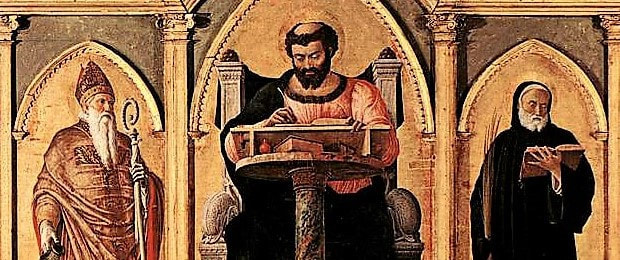|
St. Luke shown in the San Luca Altarpiece (1453) by Andrea Mantegna, via Wikimedia Commons. October 18, 2017
The Gospel appointed for this day is Luke 4:14-21, where we discover an account of Jesus teaching in the synagogue. In Luke’s Gospel Jesus is called teacher thirteen times. With such prosaic underlining, Luke is emphasizing Jesus’ authority as he addresses people about God and God’s mission plan. Thus to follow the teaching that appears in this part of the Gospel, we learn that central to God’s mission is:
Interestingly, the text from Isaiah cited by Luke is not to be found on a scroll in that specific way, since it is an artistic weaving of two different passages from Isaiah. Luke is seeking to make a theological point. He omits the portions that might allow a spiritualizing of the text in order that we understand that it is precisely the economically, physically and socially unfortunate about whom he is speaking. One can never say, if we read the Bible accurately, that it does not involve politics. Mind you, not partisanship, but certainly politics. A faithful life will always have political implications of some kind. It was so for Jesus and therefore for us. Remember, it was a government that executed Jesus. You and I therefore are to participate with God in seeking to bring about the new creation God desires for all. The four points above are always a good reference point for any of us as we examine our personal life and how we might be co-creators with God in its building. They are also a good checklist for any vestry or even an entire diocese, an examen if you will, to see if the ministry we are about as a body contributes to the realization of Jesus’ teaching. There is no better beginning or ending in our mission to follow Christ. Bishop Skip Comments are closed.
|
Bishop Skip AdamsThe Right Reverend Gladstone B. Adams III was elected and invested as our Bishop on September 10, 2016. Read more about him here. Archives
December 2019
Categories |
Copyright © 2024 The Diocese of South Carolina
P.O. Box 20485, Charleston, SC 29413 - 843.259.2016 - [email protected]
P.O. Box 20485, Charleston, SC 29413 - 843.259.2016 - [email protected]


 RSS Feed
RSS Feed